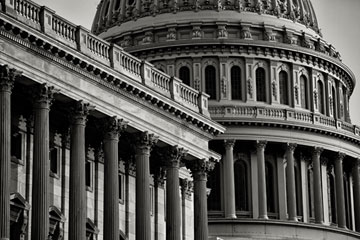
(4 of 4)
And because so much banking regulation has been pushed out of government agencies and into the private sector, even private regulators find themselves stretched to capacity and have outsourced the work to still other contractors. In its review of millions of dollars' worth of foreclosures by Bank of America, for instance, Promontory outsourced the hiring and management of hundreds of reviewers to staffing company SolomonEdwards Group, according to documents in a case brought in Georgia by contractors claiming Promontory owes them overtime pay. When OCC head Tom Curry canceled the review, he said he was doing so because the process was taking too long and wasn't producing discernible results for the affected borrowers. Promontory managing director Konrad Alt says his firm remained in control of the SolomonEdwards review and that problems with the foreclosure program were the result of the OCC's faulty design. Why did Promontory turn around and hire Julie Williams, who says she was "very involved" in crafting the enforcement order requiring the review? "Julie is a highly distinguished former public servant," says Alt. "Any firm in America would have been thrilled to hire her."
Who Watches the Watchers?
At a hearing on the use of consultants in the mortgage-relief case last April, Ohio Senator Sherrod Brown asked an OCC official what it would take for a private consultant to be barred from working for the feds. "If a consulting firm ... has repeatedly been, for lack of a better term, at the scene of a crime, what would it take before they are viewed as not qualified?"
The question could apply to many of the private firms that, in the wake of Dodd-Frank, are serving as the public's cop in the marketplace. "The monitor comes in and often has good intent," says Benjamin Lawsky, the New York State banking and insurance regulator. "But the bank is paying the monitor, the monitor is living at the bank, coziness develops, and if you don't have a regulator checking in to say, 'What have you found? Where are you looking?,' it's a recipe for disaster." Former FDIC chair Bair describes Williams as a lifelong public servant whose actions at the OCC were motivated by a desire to defend her agency and its prerogatives as a regulator. "This is not about Julie or even about Promontory. It's about a much bigger problem with the public's perception that regulators are not independent of the banks they regulate, and that is undermining their authority as regulators."
The question is how Congress and regulators can set and enforce new standards and accountability for private firms and limit the areas of the system they can influence. Ohio's Brown is developing legislation with other lawmakers to give regulators authority to punish consultants using powers similar to those they can use against banks. Brown's proposal is controversial; it may take months to find enough votes for passage. And it may take even longer before the impact of the private-bank-regulation boom is fully understood.
The original version of this article failed to include Benjamin Lawsky's first name.
